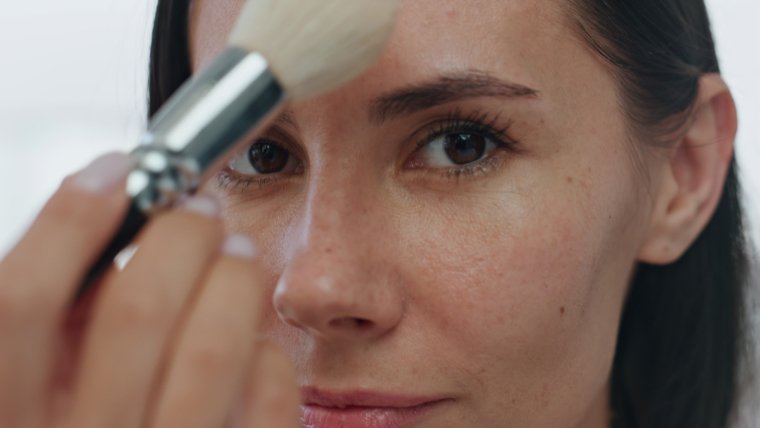Coconut oil has gained immense popularity in recent years, with many touting it as a miracle cure for everything from acne to heart disease. This hype has led to its widespread use in cooking, skincare, and oral health. However, it is important to separate fact from fiction when it comes to the health benefits of coconut oil.
The Science Behind Coconut Oil
Coconut oil is high in saturated fat, which has long been associated with an increased risk of heart disease. Saturated fat can raise cholesterol levels and contribute to the buildup of plaque in the arteries. However, coconut oil also contains lauric acid, a medium-chain fatty acid that has been shown to have antimicrobial properties. Lauric acid can help fight off harmful bacteria and viruses in the body.
Studies on the health benefits of coconut oil have been mixed, with some showing positive effects and others showing no significant benefits. For example, some studies have found that coconut oil can increase levels of HDL (good) cholesterol and improve markers of heart health. On the other hand, other studies have found no significant effects on cholesterol levels or heart disease risk factors.
Adryenn Beauty’s Take on Coconut Oil
Adryenn Beauty is a skincare brand that incorporates coconut oil into some of its products. The brand believes that coconut oil can be beneficial for the skin, but emphasizes the importance of using it in moderation. While coconut oil can help moisturize and protect the skin barrier, it can also clog pores and cause breakouts in some individuals.
Coconut Oil for Hair: Fact or Fiction?
There is a belief among some people that coconut oil can help improve the health and appearance of hair. Proponents claim that it can moisturize the hair, reduce frizz, and promote hair growth. However, there is limited scientific evidence to support these claims.
Some studies have found that coconut oil can penetrate the hair shaft and reduce protein loss, which can help improve the strength and appearance of the hair. However, other studies have found that coconut oil can actually cause protein buildup and make the hair more prone to breakage. It is important to note that individual results may vary, and what works for one person may not work for another.
Coconut Oil for Skin: The Pros and Cons
Coconut oil is often praised for its moisturizing properties and ability to protect the skin barrier. It contains fatty acids that can help lock in moisture and prevent water loss from the skin. This can be especially beneficial for individuals with dry or sensitive skin.
However, coconut oil is also comedogenic, meaning it has the potential to clog pores and cause breakouts. This is particularly true for individuals with oily or acne-prone skin. It is important to patch test coconut oil on a small area of the skin before using it all over the face or body to see how your skin reacts.
Is Coconut Oil a Miracle Cure for Acne?

There is a belief among some people that coconut oil can help clear up acne. Proponents claim that its antimicrobial properties can help kill acne-causing bacteria and reduce inflammation. However, there is limited scientific evidence to support this claim.
Some studies have found that coconut oil can have antibacterial and anti-inflammatory effects on the skin, which may be beneficial for individuals with acne. However, other studies have found that coconut oil can actually worsen acne by clogging pores and causing breakouts. It is important to consult with a dermatologist before using coconut oil as a treatment for acne.
The Truth About Using Coconut Oil as a Sunscreen
Some people use coconut oil as a natural sunscreen, believing that it provides protection from the sun’s harmful rays. However, it is important to note that coconut oil has a low SPF (sun protection factor) and may not provide adequate protection.
Coconut oil has an SPF of around 4-6, which is significantly lower than the recommended SPF of 30 or higher. While it may offer some protection against UVB rays, it does not provide sufficient protection against UVA rays, which can penetrate deeper into the skin and cause long-term damage. It is important to use a broad-spectrum sunscreen with a high SPF to protect your skin from the sun.
Coconut Oil for Oral Health: Does it Really Work?
Some people use coconut oil for oil pulling, a practice that involves swishing oil around in the mouth to improve oral health. Proponents claim that oil pulling with coconut oil can help reduce plaque, improve gum health, and freshen breath. However, there is limited scientific evidence to support this practice.
Some studies have found that oil pulling with coconut oil can help reduce plaque and improve oral hygiene. However, other studies have found no significant effects on plaque levels or gum health. It is important to note that oil pulling should not replace regular brushing and flossing, and it is best to consult with a dentist before incorporating this practice into your oral hygiene routine.
Cooking with Coconut Oil: Health Benefits and Risks
Coconut oil has become a popular cooking oil due to its perceived health benefits. It is often praised for its high smoke point and unique flavor. However, it is important to consider the potential risks and benefits before using coconut oil for cooking.
Coconut oil is high in saturated fat, which has long been associated with an increased risk of heart disease. While some studies have found that coconut oil can increase levels of HDL (good) cholesterol and improve markers of heart health, other studies have found no significant effects on cholesterol levels or heart disease risk factors.
It is important to use coconut oil in moderation and to consider the overall balance of fats in your diet. It is recommended to limit saturated fat intake and focus on consuming a variety of healthy fats, such as those found in avocados, nuts, and olive oil.
Is Coconut Oil Still the Answer to Everything?
While coconut oil may have some health benefits, it is not a miracle cure for everything. The hype around coconut oil has led to its widespread use in cooking, skincare, and oral health. However, it is important to use coconut oil in moderation and to consider the potential risks and benefits before incorporating it into your routine.
When it comes to skincare, coconut oil can be beneficial for moisturizing and protecting the skin barrier. However, it can also clog pores and cause breakouts in some individuals. It is important to patch test coconut oil on a small area of the skin before using it all over the face or body.
In terms of cooking, coconut oil is high in saturated fat and may not be the healthiest option. It is recommended to limit saturated fat intake and focus on consuming a variety of healthy fats.
Overall, it is important to approach coconut oil with caution and to consult with healthcare professionals before using it for cooking or skincare. While it may have some health benefits, it is not a one-size-fits-all solution and individual results may vary.
Is Coconut Oil Still the Answer to Everything? If you’re looking for alternative hair care options, check out this article on 9 Curl Enhancing Formulas for Natural Hair. It provides a list of products specifically designed to enhance and define natural curls. Whether you’re looking for a new styling cream, gel, or leave-in conditioner, this article has got you covered. Say goodbye to frizz and hello to beautiful, bouncy curls with these recommended formulas.




